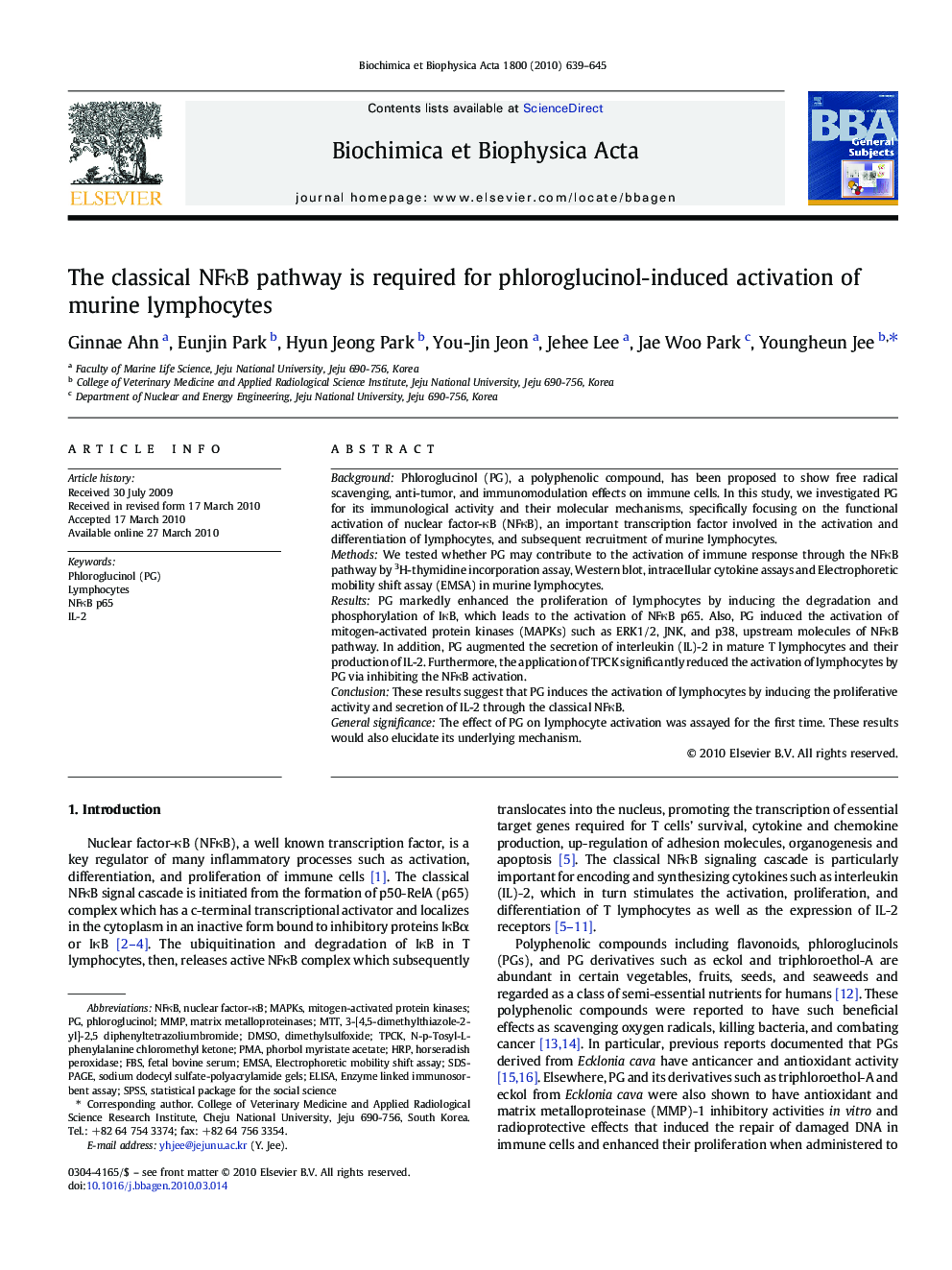| Article ID | Journal | Published Year | Pages | File Type |
|---|---|---|---|---|
| 1947900 | Biochimica et Biophysica Acta (BBA) - General Subjects | 2010 | 7 Pages |
BackgroundPhloroglucinol (PG), a polyphenolic compound, has been proposed to show free radical scavenging, anti-tumor, and immunomodulation effects on immune cells. In this study, we investigated PG for its immunological activity and their molecular mechanisms, specifically focusing on the functional activation of nuclear factor-κB (NFκB), an important transcription factor involved in the activation and differentiation of lymphocytes, and subsequent recruitment of murine lymphocytes.MethodsWe tested whether PG may contribute to the activation of immune response through the NFκB pathway by 3H-thymidine incorporation assay, Western blot, intracellular cytokine assays and Electrophoretic mobility shift assay (EMSA) in murine lymphocytes.ResultsPG markedly enhanced the proliferation of lymphocytes by inducing the degradation and phosphorylation of IκB, which leads to the activation of NFκB p65. Also, PG induced the activation of mitogen-activated protein kinases (MAPKs) such as ERK1/2, JNK, and p38, upstream molecules of NFκB pathway. In addition, PG augmented the secretion of interleukin (IL)-2 in mature T lymphocytes and their production of IL-2. Furthermore, the application of TPCK significantly reduced the activation of lymphocytes by PG via inhibiting the NFκB activation.ConclusionThese results suggest that PG induces the activation of lymphocytes by inducing the proliferative activity and secretion of IL-2 through the classical NFκB.General significanceThe effect of PG on lymphocyte activation was assayed for the first time. These results would also elucidate its underlying mechanism.
